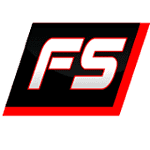Kansas City, Kansas is the site for the next race for the NASCAR Gander Outdoors Truck Series. While qualifying is always important, every driver will have a sense of comfort, as they will all make the Digital Ally 250 on Friday, May 10. Currently, only 27 drivers are entered for the race, five short of a full field.
With this low-count Truck Series field, especially when the companion event, the Monster Energy NASCAR Cup Series race at Kansas Speedway, will have a full field, questions arise about the series as it pertains to field size.
Six drivers failed to qualify for the TruNorth Global 250 at Martinsville Speedway. Why then is there an 11-entry difference between that race and Kansas?
For one, the track size. Martinsville is 0.526 miles whereas Kansas is one-and-a-half miles. Under NASCAR rules, drivers have to be at least 18 years old to compete on tracks larger than one mile. Therefore, young drivers cannot compete at Kansas. Prospect Derek Kraus competed at Martinsville, but because he is 17 years old, he cannot compete at Kansas Speedway. Kraus’ team, Bill McNally Racing, will not field an entry for Kansas.
Recently, three teams have opted not to compete full time, at least two of them due to lack of sponsorship. Cory Roper and Roper Racing didn’t compete in the JEGS 200 at Dover International Speedway, and they aren’t entering their No. 04 Ford this Friday.
Without a sponsor, On Point Motorsports decided to skip Kansas. As a result, driver Brennan Poole will not compete full-time, a second driver forfeiting his playoff eligibility. Lastly, Korbin Forrister and All Out Motorsports also withdrew from the race. While no reason was listed, Forrister had attempted all the races this season. If he does not compete, he, too, forfeits his playoff eligibility.
So why are teams dropping from full-time competition like a sack of potatoes? That’s the great debate. On Twitter, former Truck Series owner DJ Copp shared his respective thoughts.
Copp blamed the high cost of the NT1 engine for forcing teams out of NASCAR. Interestingly, the NT1 engine was supposed to reduce costs for the Truck Series teams.
The new Illmore spec motor was to make it more affordable for teams to race in the truck series. Well maybe for the top 7 or 8 and left the rest out to dry.
— D.J. Copp (@DJCopp83) May 8, 2019
When someone noted the NT1 engine is intended to help long-term, Copp responded with this.
That’s the problem. Help is needed immediately! Car/truck counts prove that.
— D.J. Copp (@DJCopp83) May 8, 2019
It is worth noting the team Copp owned, Copp Motorsports, no longer competes in the Truck Series. Nonetheless, the responses yielded several people desiring schedule changes. NASCAR made some changes to the Truck Series schedule for next season, but that’s in the future, not the present, like Copp suggested.
Current Truck Series owner-driver Josh Reaume added his thoughts on the Truck Series field size.
https://twitter.com/joshreaume/status/1126234533391679489
NASCAR no longer releases the purses, so we, including the media and the public, don’t know what teams receive for each race. From the NASCAR Hall of Fame in Charlotte, North Carolina to Kansas Speedway is a 16-hour drive. That costs teams gas, lodging, food and time.
If the purse for Kansas isn’t large enough for smaller teams, such as Roper Racing, On Point Motorsports and All Out Motorsports, then it is financially smarter for them to save money by not racing. None of the drivers from those three teams have won a race before. So if the teams aren’t certain their driver has a chance to win, why waste the time, money, etc.?
It’s an ongoing battle in NASCAR to keep the costs down. Owner-driver Jordan Anderson runs his team full time, and he has credited the NT1 engine for reducing his costs. He also forged an alliance with GMS Racing before the season, so he is receiving help from a top team.
Still, Reaume has fielded a full-time team, Reaume Brothers Racing, since 2018, and the team has expanded to a part-time second team this season. Josh Bilicki will drive the second truck at Kansas.
While there are only 27 entered drivers for Kansas, there is still talent in the field. Brandon Jones will again drive the No. 51 Kyle Busch Motorsports Toyota, and he is seeking his first NASCAR victory. KBM will field a fourth entry for the race, the No. 46 Toyota, driven by Riley Herbst.
Only two Truck Series regulars have won races this season. Both Austin Hill and Johnny Sauter probably already clinched their respective playoff berths, but both drivers want more playoff points to make a run to the championship race at Homestead-Miami Speedway.
For the rest of the full-time drivers, a win virtually guarantees them a playoff berth. All four ThorSport Racing drivers have shown speed this season, so will Ben Rhodes, Matt Crafton or Grant Enfinger give the team back-to-back victories?
Regular KBM drivers Harrison Burton and Todd Gilliland are chasing their first wins as well, so the organization as a whole will be hungry for victory.
Even if NASCAR finds solutions to help increase Truck Series field sizes, those answers won’t help overnight. Teams are already prepping their trucks for the following race at Charlotte Motor Speedway. Purse sizes most likely were determined before the season began. Even if NASCAR lowered costs for teams, would companies come onboard to sponsor teams? Because of those reasons, Truck Series fields at large tracks, such as at Texas Motor Speedway in June, will likely continue to not be full.
Mark Kristl joined Frontstretch at the beginning of the 2019 NASCAR season. He is the site's ARCA Menards Series editor. Kristl is also an Eagle Scout and a proud University of Dayton alum.



